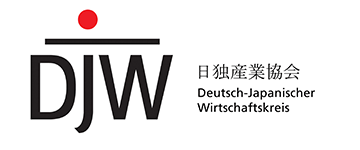Gastvotrag von Prof. Ken V.L. Hijino (Kyoto University)
DJW会員ミュンヘン大学Japan-Zentrum主催イベント
本イベントは終了しました。
DJW会員およびパートナーの最新イベント情報を表示Japan-Zentrum der LMU, Raum 057
Seminargebäude am Englischen Garten
Oettingenstr. 67
80538 München
Das Japan-Zentrum der Ludwig-Maximilians-Universität München veranstaltet im Rahmen des Forschungskolloquiums im Wintersemester 2022/23 folgenden Gastvortrag, mit dem eine semesterbegleitende Reihe von Vorträgen beginnt.
Inhalt (Englisch)
The ideological conflicts of Japan’s subnational politics tend to be interpreted as either being largely muted or contained within the traditional national cleavage dimension of conservative vs progressive camps. Following two decades of substantial decentralization and growing local autonomy, however, a diversity of new ideological response to local issues have appeared. These include neo-liberal parties and executives in wealthier regions like Tokyo and Osaka or regionalist identity politics such as that found in Okinawa. Nativist right and populist left (Japan First Party and Reiwa Shinsengumi) along with single-issue (NHK) parties regularly stand candidates for subnational elections. Despite this increasingly crowded field, there is still no systematic understanding of the divergent ideological worldviews and cleavages operating at subnational level. Furthermore, at municipal level, where elections are largely nonpartisan aside from the largest cities, we know even less about the ideological content of mayoral elections in general. In this talk, we start to fill this gap by investigating the campaign discourse of gubernatorial and mayoral candidates, looking at a unique set of over 600 individual campaign manifestos (senkyo koho) as well as campaign speeches of select gubernatorial candidates in three regions – Tokyo, Okinawa, and Fukushima. Besides trying to capture diverging ideologies and their resulting cleavages in different types of municipalities and prefectures and comparing them with those at the national level, the talk also analyses how subnational elections have changed before and after the Covid-19 outbreak. More specifically, we analyse how ideologically divergent candidates have understood the changing role of local government autonomy during the health crisis. We consider whether subnational politicians have attempted to strategically “blame” the central government over perceived failures while “claiming credit” for any perceived success in handling the pandemic, as comparative theories of multilevel dynamics suggest should happen.
Prof. Ken V.L. Hijino (Kyoto University)
Ken Hijino is Professor of law at Kyoto University. Specializes in party politics and local democracy. After graduating from Wesleyan University worked as a journalist at the Financial Times Tokyo bureau. Earned his PhD at the Cambridge University Faculty of Oriental Studies. Was an associate professor in Keiō University’s Graduate School of System Design and Management until taking up his present post in 2014. His recent works include Local Politics and National Policy: Multilevel Policy Conflicts in Japan and Beyond (Routledge, 2017), “Japanese Local Government” in Handbook of Japanese Politics (Oxford University Press, 2020), “What drives Japanese regional elections? Multilevel factors and partisan independents” (Regional and Federal Studies, 2020) and, together with Ishima Hideo: “Multi-level muddling: Candidate strategies to ‘nationalize’ local elections” (Electoral Studies, 2021). He is currently researching the politics of the periphery, focusing on municipal and prefectural level party organizations and campaigning in LDP-dominated strongholds on issues of urban-rural cleavage, depopulation, economic decline, and inter-regional competition and disparity. He also writes occasional general audience pieces on Japanese local politics for Nippon.com.
Teilnahme
Der Vortrag findet in Präsenz statt.
In allen LMU-Gebäuden besteht keine Maskenpflicht. Es wird empfohlen, weiterhin medizinische Masken oder FFP2-Masken zu tragen, wenn ein enger Kontakt (ohne Mindestabstand von 1,5 m) zu anderen Personen stattfindet (z.B. Gespräch, gemeinsame Arbeiten, längere Anwesenheit im Raum).
Eine vorherige Anmeldung ist nicht erforderlich.
Weitere Informationen erhalten Sie via https://www.japan.uni-muenchen.de/veranstaltungen/index.html sowie im Link zu diesem Vortrag.
























